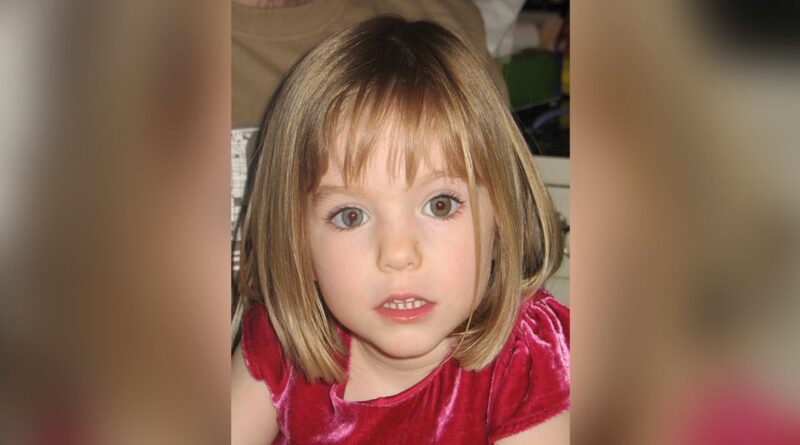Madeleine McCann Disappearance in Praia da Luz, Lagos, Algarve Portugal
On the evening of May 3, 2007, three-year-old Madeleine McCann vanished without a trace from Apartment 5A of the Ocean Club resort in Praia da Luz, Lagos, on Portugal’s Algarve coast. What began as an idyllic family holiday soured into an international missing-child case that gripped the world. The collective shock at her disappearance revealed profound vulnerabilities in child safety, cross-border policing, and media responsibility—issues that continue to resonate nearly two decades later.
The McCann Family Arrival
Kate and Gerry McCann, both physicians from Leicester, England, arrived in Praia da Luz on April 28, accompanied by their then-two-year-old twins, Sean and Amelie. Seeking respite from their demanding careers and a chance for Kate’s post-pregnancy recovery, the family checked into a ground-floor apartment overlooking the resort’s manicured gardens and pool. Madeleine, born May 12, 2003, was an active, inquisitive child with an outgoing personality; family friends describe her as bright-eyed and affectionate.
Praia da Luz and the Ocean Club Resort
Praia da Luz, historically a fishing village turned holiday destination, offered a mélange of scenic beaches and tourist amenities. The Ocean Club resort comprised whitewashed apartments, multiple pools, tennis courts, and a children’s play area. Ground-floor units like 5A opened onto small patios, separated only by low walls and shrubbery. Management maintained nightly staff patrols, but security protocols were minimal, relying heavily on the honor system and the assumption of guest oversight.
The Fateful Evening Routine
On the night of May 3, Madeleine and her siblings were placed to bed around 8:30 p.m. in Apartment 5A. At approximately 9:05 p.m., Kate and Gerry left the twins and Madeleine unattended, joining four close friends for dinner at a tapas bar roughly 55 meters away. They took turns checking the children at half-hour intervals. Madeleine’s bed was found empty during Kate’s 10:00 p.m. check—just 55 minutes after the family departed—triggering the first alarm.
Initial Alarm and Immediate Response
Upon discovering Madeleine missing, Kate McCann screamed for help, drawing fellow diners and resort staff. Gerry dashed back to the apartment block, enlisting two friends to search the surrounding area. A frantic sweep of the resort grounds, neighboring hotels, and deserted streets yielded no sign of her. The resort manager notified local police at 10:40 p.m., launching an official search that spanned beaches, caves, and abandoned properties along the rugged coastline.
Portuguese Police Investigation
The Polícia de Segurança Pública (PSP) arrived with limited forensic capability. They conducted door-to-door inquiries, interviewed resort employees, and combed CCTV footage from surrounding businesses—though camera coverage was sparse. Early leads focused on a lone male figure spotted on the resort grounds earlier that day, but no definitive suspect emerged. The slow rollout of crucial evidence—such as blood traces in the apartment—frustrated the McCanns and fueled criticism of procedural shortcomings.
British Involvement and Operation Grange
Under intense public pressure, the UK government dispatched liaison officers to assist the Portuguese investigation. In 2011, the Metropolitan Police launched Operation Grange, dedicating permanent detectives and funding to re-examine case files, witness statements, and forensic data. British investigators traveled to Portugal repeatedly, employing advanced techniques such as electronic device analysis and fiber-tracking. Despite these efforts, they produced no conclusive findings and scaled back active resources in later years.
Private Investigation and Civil Litigation
Frustrated by official inertia, the McCanns funded a private inquiry team, deploying former detectives, sniffer dogs, and ground-penetrating radar to search wells, reservoirs, and landfill sites. They also pursued libel actions against Portuguese media outlets that had insinuated parental culpability. In 2008, the McCanns were formally named arguidos (formal suspects) by Portuguese authorities—a status lifted a year later due to insufficient evidence. Subsequent defamation suits resulted in damages paid to the McCanns and judicial reprimands for outspoken local journalists.
Evolving Theories and Suspect Profiles
Over the years, theories have ranged from a botched burglary to a targeted abduction by organized traffickers. In 2020, German prosecutors identified Christian Brückner, a German national and convicted sex offender, as the prime suspect based on phone records and property links. This development prompted renewed searches at his former residences in Praia da Luz. Alternative lines of inquiry continue to explore sightings, unverified witness accounts, and speculative forensic interpretations.
Media Coverage and Public Reaction
Madeleine’s disappearance ignited a media fervor unprecedented for a missing child. Round-the-clock news cycles, tabloid exposés, and dedicated television specials kept her story in global headlines. While this sustained attention generated valuable tips, it also fostered invasive speculation, unverified rumors, and undue scrutiny of the McCann family. The case became emblematic of “missing white girl syndrome,” spurring debates over race, class, and media responsibility in covering disappearances.
Policy Reforms and Child-Safety Initiatives
In the aftermath, resorts worldwide reassessed child-supervision protocols. Hotels introduced more robust night-watch teams, implemented electronic access controls, and offered on-site crèche services. Portuguese authorities, under EU guidelines, improved interagency coordination, streamlined Amber Alert procedures, and invested in enhanced CCTV coverage in tourist areas. The European Commission cited the case in drafting legislation to bolster cross-border missing-child alerts and data-sharing among law enforcement agencies.
Legacy and Continuing Search
Despite exhaustive inquiries and substantial rewards, Madeleine McCann’s whereabouts remain unknown. Her disappearance spurred the creation of international databases for missing children and galvanized NGOs such as the International Centre for Missing & Exploited Children. Annual remembrance events in the UK and Portugal honor her memory while advocating for systemic vigilance. The McCanns remain committed to the search, maintaining an active online portal and fundraising for investigative costs.
Conclusion
The vanishing of Madeleine McCann on May 3, 2007, in Praia da Luz stands as one of the most haunting and consequential missing-child cases of the 21st century. It laid bare the fragility of safety nets for vulnerable children, the complexities of multinational investigations, and the potent influence of media in shaping public perception. Two decades on, her story continues to drive policy changes, inspire advocacy, and remind the world that the search for answers—and for justice—must never cease.
Discover more from City Towner
Subscribe to get the latest posts sent to your email.




